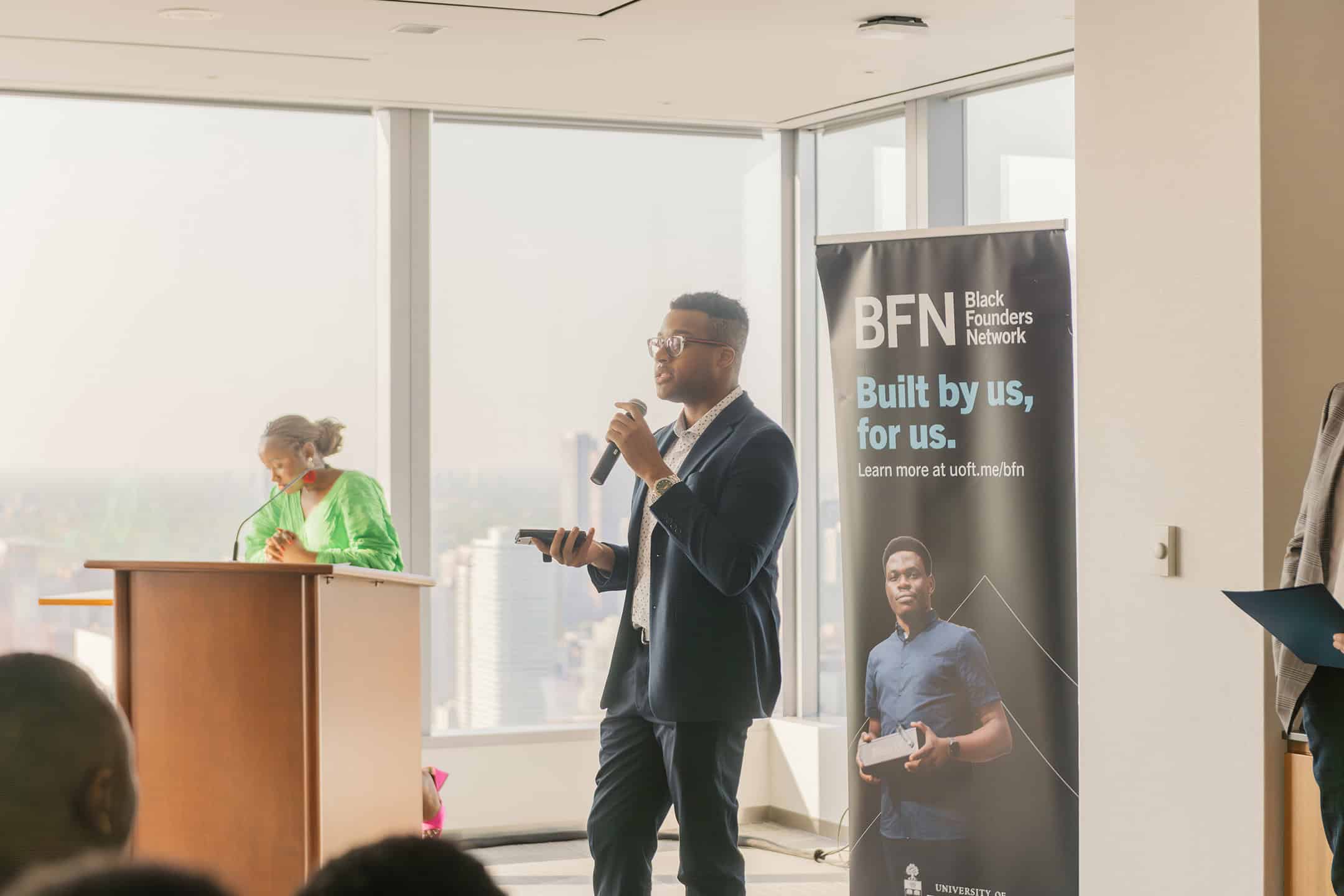Navigating autism can be challenging for families and individuals, seeking reliable resources and support online. To address this, Odosa Obasuyi — a third-year computer science, math, and cognitive science student at U of T — founded Autinerary, a non-profit organization aimed at providing a clear, step-by-step roadmap for accessing essential resources for individuals on the autism spectrum. In an interview with The Varsity, Obasuyi shared insights into Autinerary’s mission and goals.
Changing the perception of the autism journey
Individuals and families with loved ones on the autism spectrum founded the term autinerary — a blend of the words ‘autism’ and ‘itinerary.’They recognized a critical need for accessible information, services, and community support. Rather than creating new resources, Autinerary focuses on curating and organizing existing ones to make them easily accessible while also driving innovation to address gaps and develop new solutions. As Obasuyi explained, Autinerary is the resource its team of volunteers “wish [they] had on their own journeys.”
Through its website, Autinerary provides information services and community support in one centralized platform built on two critical pillars: positivity and innovation.
Through numerous conversations with the parents, siblings, autistic adults, and others connected to the autism community, the Autinerary team identified a significant need for positivity. The negative stigma surrounding autism and the challenges of the autism journey highlighted the importance of fostering a positive, empowering environment.
The second pillar, innovation, focuses on leveraging technology to develop a comprehensive service platform. This platform aims to provide accessible information and tools, helping individuals learn more about autism and become better allies to those on the spectrum.
Currently, Autinerary’s main service is providing immediate, reliable access to essential resources. At the heart of this is the Service Hub, a system powered by Google Maps API, software that allows developers to integrate Google Maps features into their websites. The Service Hub helps users locate nearby services and professionals related to autism therapy, job hiring and training for neurodivergent individuals, and financial support. According to Obasuyi, these services are often underrepresented and difficult to access for neurodivergent individuals. The Autinerary team wants to bridge this gap by making these resources more visible and accessible.
In addition, Obasuyi places a strong emphasis on community-building. One of Autinerary’s key initiatives is Sibchat, an online platform designed for the siblings of individuals on the spectrum to connect, share experiences, and support one another. Sibchat is free to access through Autinerary’s website, requiring only a simple user signup. The team is currently working on redesigning the platform’s interface to enhance the user experience.
Recent campaigns and next steps
The Autinerary team recently concluded its “Crisscross Challenge” campaign on TikTok where participants had the chance to win $1,000. The prize is split with $500 given to the winner and $500 to be donated to a family in need. It was targeted towards supporting one of the 60,000 families in financial need on the waitlist for the Ontario Autism Plan (OAP). The OAP is a government initiative that provides support to families with children and youth on the autism spectrum.
Autinerary’s upcoming “Autism Is” campaign aims to foster open conversations about the autism journey, both for individuals on the spectrum and for those who may be unaware or misinformed about autism. The team will invite participants to answer a series of five questions related to autism. Obasuyi hopes the campaign provides a deeper understanding of the autism experience directly from those who live it by having participants share honest responses.
Obasuyi and his team plan to launch a revamped Service Hub on its website next year, featuring an artificial intelligence-powered search bar that will provide users with curated service and community recommendations. The updated Service Hub will also integrate the Google Maps API and other tools to provide both 2D and 3D street view maps of the services listed in Autinerary’s Service Directory, enhancing the user experience and making it easier to locate and explore resources.
Obasuyi emphasized that one of the most important lessons he learned is the value of teamwork, noting that, even as a founder, “you really cannot do it alone.” With a dedicated team of 11 volunteers, Autinerary continues to develop new features, including a newsletter raising awareness about autism.



No comments to display.